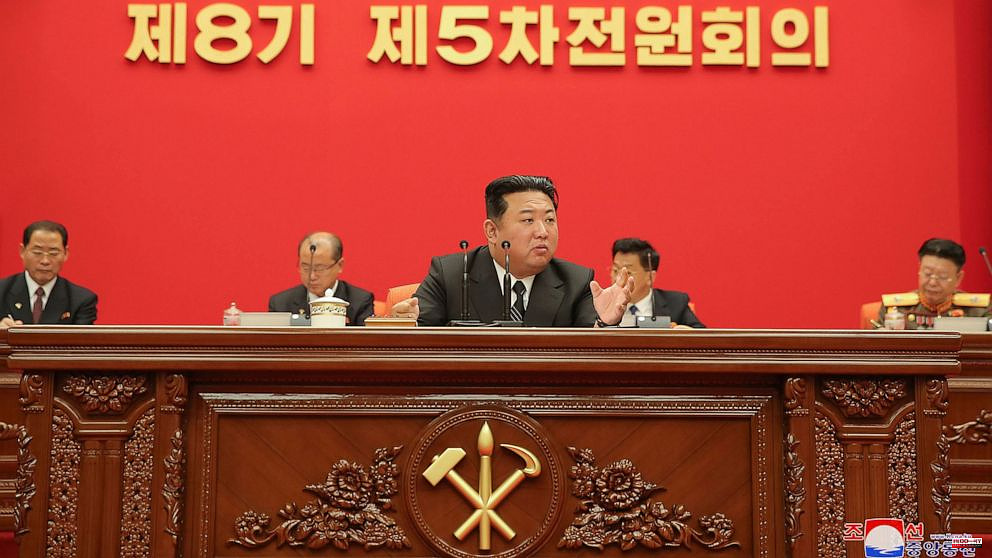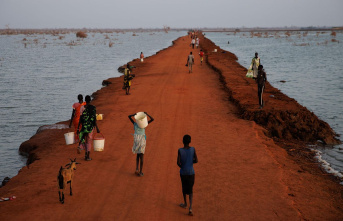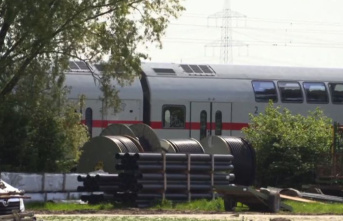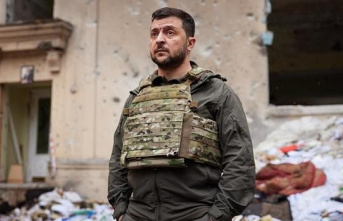SEOUL, South Korea -- North Korean leader Kim Jong Un increased his arms buildup in face of an increasingly dangerous security environment. He concluded a major conference as officials from the U.S.A and South Korea said that North Korea is continuing to prepare for a nuclear test.
Kim's remarks, published on Saturday by North Korea's State-run Korean Central News Agency, didn't criticize the United States or South Korea. This was despite a long deadlock in nuclear diplomacy over the three days of talks that ended Friday.
According to the agency, Kim justified his rightful exercise in sovereign rights to self defense by accelerating weapons development and listed further "militant tasks", which he wished to have his armed forces and military scientist pursue. However, the report did not mention any goals or plans for testing activities, such as the detonation a nuclear device.
The Workers' Party's Central Committee met in plenary to review key state affairs. They reviewed efforts to slow down a COVID-19 epidemic that the North first recognized last month, and progress toward economic goals Kim desperately wants to maintain amid increased virus restrictions.
"(Kim), said that the right to self defense is an issue of defending sovereignty. This clarifies once more the party's invariable fighting principle power for power, head-on contest," KCNA stated.
This meeting took place amid provocative missile demonstrations. It jolts an older pattern of brinkmanship that aims to force the United States into accepting North Korea's idea of nuclear power.
For years, North Korea has been able to create diplomatic crises using threats and weapons tests before finally offering concessions.
Kim promoted an experienced diplomat with extensive experience in dealing with U.S. affairs to his position as his foreign minister, a move which could have implications for future foreign policy.
Choe Sun Hui, a North leader's sister Kim Yo Jong and one of the most powerful women, played a key role in Kim Jong Un's preparations for his meetings in 2018 with Donald Trump. After the US rejected North Korea's demand for major releases of U.S.-imposed sanctions, talks between Washington and Pyongyang were halted.
Choe will replace Ri Son Gwon who is a hard-liner from the military and was announced during the meeting as Kim's new point man on South Korea.
North Korea is known for putting pressure on Seoul whenever it does not get what it wants from Washington. Although the KCNA report didn't mention South Korea specifically, it stated that the participants had clarified "principles as well as strategic and tactical orientations to continue in the fight against the enemy" and in foreign affairs.
North Korea already holds an annual record for ballistic launches in the first half 2022. It has fired 31 missiles at 18 launch events, including its first intercontinental ballistic missile demonstrations in almost five years.
Kim could up the ante as officials from the U.S., South Korea and Japan claim that North Korea is almost done with preparations to explode a nuclear weapon at its Punggye-ri testing ground. Since September 2017, the site was inactive and hosted North Korea's sixth nuclear testing. In that test, it claimed it had detonated a thermonuclear weapon designed for its ICBMs.
Experts say that Kim's unusually rapid pace of testing activities in North Korea demonstrates his dual intent to expand his arsenal and press the Biden administration to resume long-stalled nuclear diplomacy.
The United States has stated that it will push for more sanctions against North Korea if they conduct another nuclear test. However, due to the divisions within the U.N. Security Council permanent members, there are no prospects of meaningful punitive actions. Russia and China vetoed U.S. sponsored resolutions that would have increased sanctions this year, insisting that Washington should concentrate on reviving dialog.
Kim's pressure campaign was not hampered by the COVID-19 epidemic that has been spreading through 26 million people's largely unvaccinated autocracy.
The North Korean government maintained that the outbreak was under control during the meeting, despite the fact that there were serious health concerns about the country's crumbling healthcare system.
Although North Korea has made it difficult for people and goods to move between its regions, large numbers of workers continue to gather at industrial sites and farms, driven by the need to support an economy that has been decimated by years of mismanagement, sanctions, and closures of border areas due to pandemics.
Kim stated that the country's anti-virus campaign in "maximum emergencies" over the past month has helped the economy to deal with the virus.
Kim rejected the U.S.- and South Korean offers for vaccines and other assistance. GAVI, a non-profit that manages the U.N.-backed COVAX vaccine distribution program, claims North Korea has started to administer doses from China. However, it wasn't clear how many doses were being distributed and their distribution.












